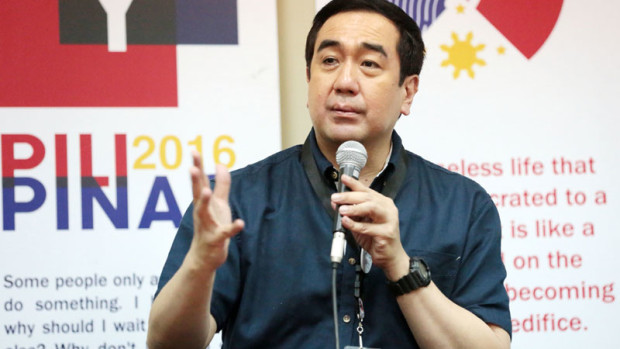The Commission on Elections (Comelec) wants the 31-year-old Omnibus Election Code (OEC) amended to keep it in tune with modern election practices and realities.
Comelec Chair Andres Bautista said the poll body would urge Congress to revise the outdated law, also known as the 1985 Batas Pambansa Blg. 881.
“I want to have a new OEC because BP 881 is already circa 1985. Then, we only had a manual system in mind and the number of voters was only at 30 million. It’s that outdated,” he pointed out.
The OEC is the decades-old law that governs all elections of public officers, as well as all referendums and plebiscites.
Bautista said they hoped to push for the long overdue amendment of the said law in the first months of 2017.
“We are hoping that by the first quarter of 2017, we can already pass our draft amendments,” he said, adding that the draft amendments were the products of a study of the Comelec.
This was after the Senate and House committees on electoral reform and suffrage asked the poll body to submit its recommendations on how to best amend the OEC.
“There is already the draft but we still need to ratify them. I think we should copy international best practices. But we also have to make sure that they are adaptable to the Philippine setting,” he said.
Bautista said he had personally favored amending the said law, since modernizing the OEC was a long overdue move, given that the Comelec has now moved on to automated election system.
The Philippines first adopted the automated election system in the 2010 presidential election, using the technology anew in 2013 and 2016 during the national elections in the said years.
For the barangay and Sangguniang Kabataan elections on Oct. 23, 2017, the Comelec will revert to a manual conduct of elections.
“We want the OEC to be relevant to society. We must make use of available technology and other modern-day conveniences to help our voters and make the voting system easier,” he said.
During the 2016 national and local elections, more than 54 million Filipinos registered as voters.
Meanwhile, Bautista stressed the need to also update the campaign spending limit and take into consideration the actual cost of running an electoral campaign.
The law only allows presidential and vice presidential candidates to spend P10 for every registered voter in the country and overseas; while candidates for other positions can spend P3 for every voter.
Independent candidates can spend P5 for every voter currently registered in the area where they are running; while political parties and party-list groups can spend P5 for every voter.
“We have already said in the past that we really need to adjust the spending limit,” Bautista said.
